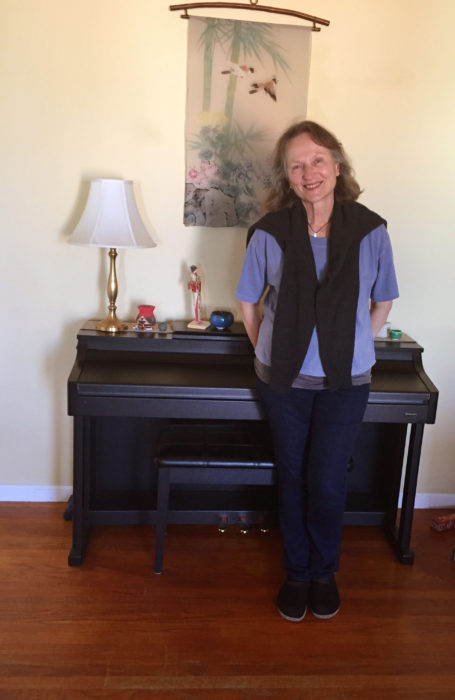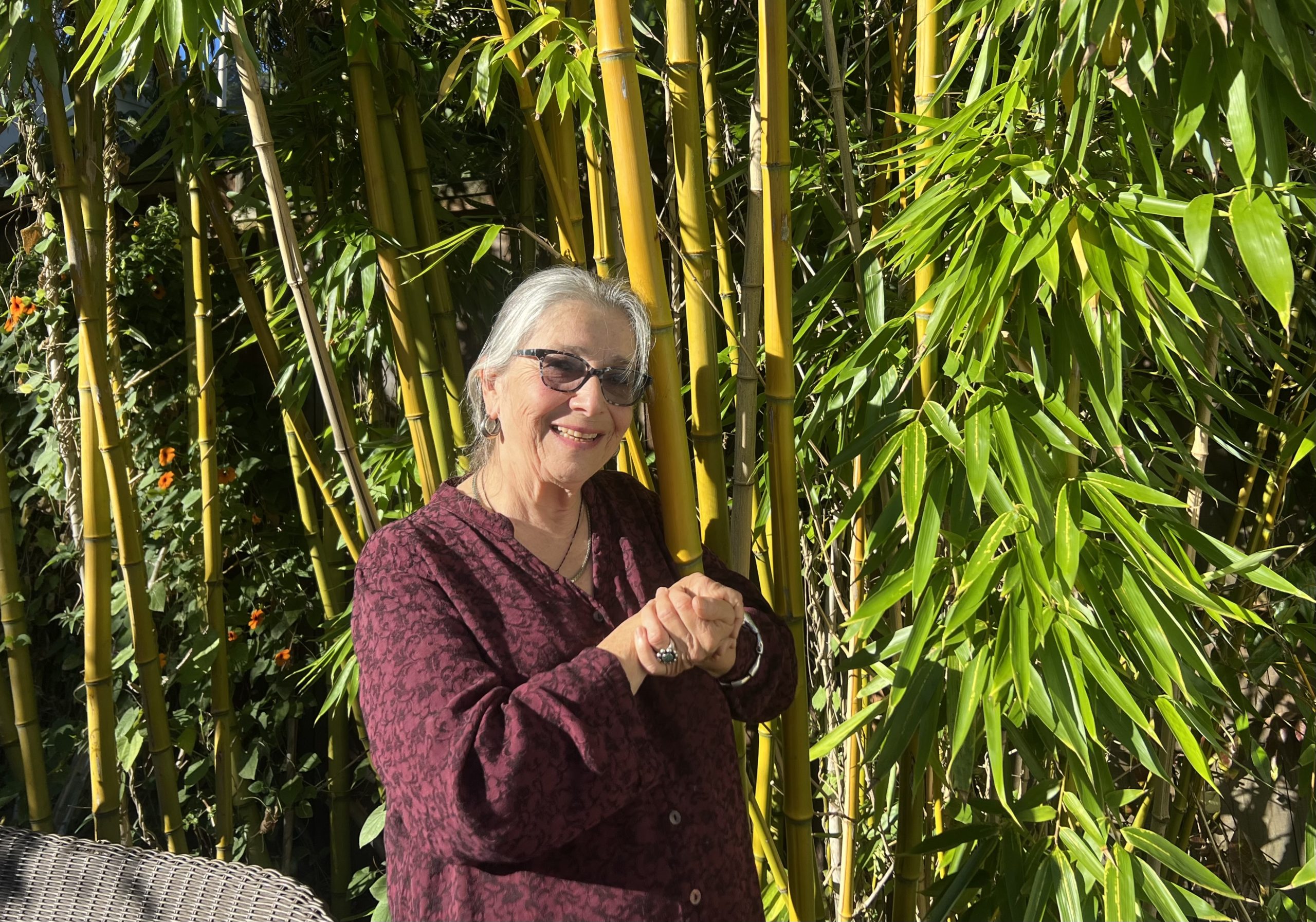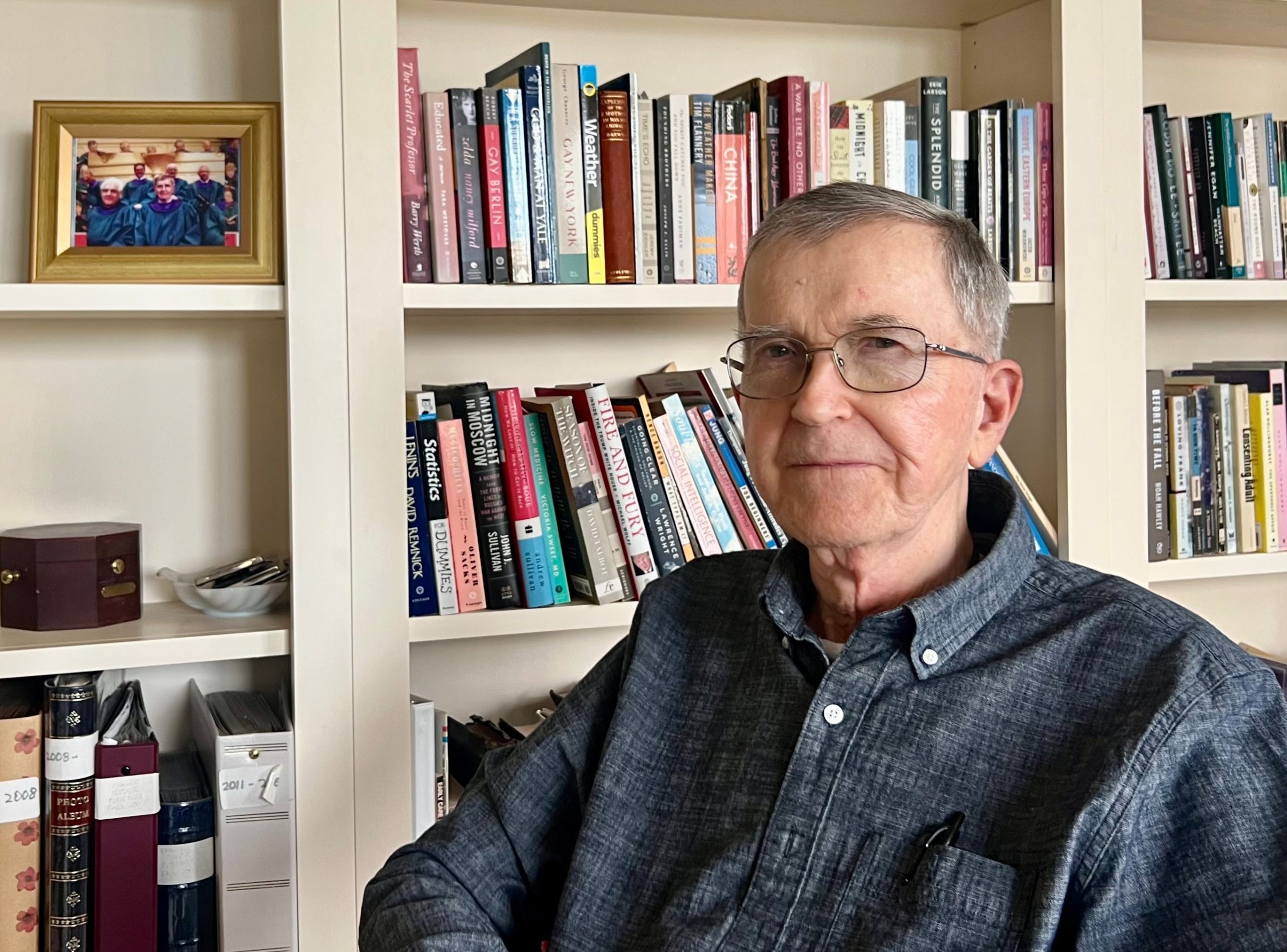Despite its challenges, wife and mother says hearing loss a lesson in human nature that brought family closer
Blanche Capilos has severe hearing loss. It has its advantages, she said wryly. In noisy places like a mall or in restaurants, she can turn down the volume on her hearing aids. And she no longer has to hear her husband snore; she takes them out at night.
“It’s my secret to a long, happy marriage.” Capilos said.
But she’s happy to have her hearing aids while hiking in nature, listening to birds or when at the ocean. And in the long run, adversity has strengthened her marriage and taught her to set boundaries.
Capilos, 66, and her husband, Roger, 71, both now wear hearing aids. His loss has been mostly age-related. Hers began in middle age due to a genetic condition. Together, in the last 10 years since she began losing her hearing, they have worked as a team to ease its impacts.

“We agreed not to yell through the walls, but rather talk face-to-face.” They stopped going to movies and watched films at home, listening but also reading closed captions. “Sometimes actors speak really quickly, and we weren’t catching all the dialogue.”
Hearing loss is a prevalent chronic condition among older adults. According to the National Institutes of Health, nearly 25 percent of those aged 65 to 74 and 50 percent of those who are 75 and older have disabling hearing loss.
Those who do experience hearing loss discover the high cost of hearing aids, which are not covered by most insurance. Finding a comfortable fit is another challenge. But hearing loss has emotional and cultural components, which are perhaps the most difficult to face: accepting the loss, dealing with family and friends, and coping with social situations. “It’s all about constantly making adjustments,” Capilos said.
And it’s not just adapting to her own hearing loss.
Wear your hearing aids
Capilos’ biggest pet peeve is people who have hearing aids but don’t wear them. “I try to help them see that without hearing properly, they’re being disrespectful to themselves and others.”
Her husband was one of those people because he didn’t like the way they felt. “It was harder for him to lose his hearing than me because he didn’t see it coming. He was in a job where all the men talked very loudly, so he didn’t notice the decline.”
Capilos started losing her hearing at 37 when she was diagnosed with Otosclerosis, an abnormal growth of bone near the middle ear. At the time, she was working as a model and pregnant with her second daughter. “During my last year of modeling, before I got pregnant, I noticed my hearing was changing. I thought I had a cold.”
By 42, her hearing had declined even further. She chose to have surgery in her right ear. It went well but didn’t improve her hearing. By then, she was also having trouble with her left ear. Instead of another surgery, she got hearing aids. Thus, began another adjustment.
“I didn’t feel embarrassed wearing hearing aids, but I began to experience a range of reactions from those I told.” She realized people didn’t know how to respond to the news that she couldn’t hear well. “They would say, ‘Oh, I’m sorry,’ or ‘I can’t see them.’”
Other’s impatience ‘hurtful’
“People were generally impatient,” Capilos found. And their reactions, which seemed to imply she was stupid, “was very hurtful.” Some didn’t want to raise the volume of their voices “because they were taught that wasn’t polite,” she said. Some even accused her of using being hard of hearing as an excuse for not listening to them.
She was also dealing with her family’s reactions. “My husband and Rachel would lose patience with me,” Capilos said, adding that both her husband and her 16-year-old daughter had known her first as a person with normal hearing.“They thought I was toying with them because they didn’t understand how I could go from hearing to non-hearing.”
Capilos’ hearing loss was especially hard on her teenager. “She was adjusting to my new baby, to not being an only child, going through teenage stuff, and me not being a model anymore.”
Everyone’s tempers occasionally flared. “It was hurtful at times. I felt angry they didn’t understand,” Capilos said. “But I also realized that, in time, all of us would adjust.”
Capilos left the modeling profession at 42 because “I wanted to go out gracefully while I was still being booked.” A job for I. Magnin in San Francisco led to jobs with Nordstrom, Neiman Marcus and Saks as well as jobs in Los Angeles. She stayed home to take care of her family, and later, her grandson, during her oldest daughter’s long shifts as a firefighter.
Becoming more assertive
Once things settled down within her own family, Capilos’ challenges shifted to outside the home. She was learning to become more assertive.
Her strategy at her sister’s favorite restaurant, where they typically met during the busiest and noisiest time of the day, had been to “use my right arm to cup my ear to hear better. But by the end of the meal I was exhausted from the strain of holding my arm up.”
So, she told her sister she wouldn’t be able to meet her again at that time because it was too stressful. “I’m learning to set boundaries to take care of myself.”
She also did that with a 97-year-old aunt who refused to wear her hearing aids when Capilos called. “I told her caretaker that I wouldn’t continue to shout into the phone and if she wanted to talk to me, she’d have to wear her hearing aids.”
And she hasn’t let her hearing loss stop her from socializing or attending parties, which she enjoys. “But if I’m speaking to someone who can’t accept my hearing loss, and is not willing to adjust to my needs, I’ll go off and talk with someone else.”
Self-pity never entered the picture
When she tells people she has a hearing loss, she asks them to talk face-to-face. “I never studied lip reading but I’ve gotten pretty good at it.” In the 30 years since her hearing began deteriorating, it has gone from moderate to borderline severe/profound. Without her hearing aids, she can only hear if someone is shouting.
“The audiologist tells me that my condition might reach a plateau without further hearing loss, but only time will tell.” If the time comes and she were to become deaf, she said, she’ll study signing.
Everything she has experienced around her hearing loss has been valuable in better understanding human nature, in herself and others, she said. “I never felt sorry for myself. I never said, ‘Why me?’”





